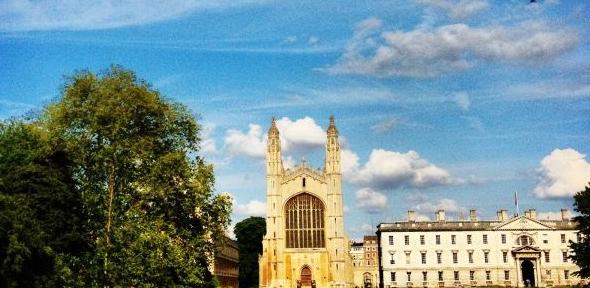
For more than 150 years the University of Cambridge has attracted scholars from India. Many of India's leading figures - academics, scientists, industrialists and politicians - have enjoyed a Cambridge education. Here are examples of just a few of the eminent Indians who studied at Cambridge.
The Sportsman and Reformer
Prince Ranjitsinhji, Trinity College 1888-1891 is considered one of the greatest cricketers of all time and played for Sussex and England. In India, he did much to improve conditions in his home state of Nawanagar.
The Industrialist
Sir Dorabji Tata, Gonville and Caius College 1877-1879 played a key role in the development of the Tata Group, especially in the steel and power sectors. In 1920 he made a substantial donation towards a new building for the Department of Engineering at Cambridge.
The Mathematician
Srinivasa Ramanujan, Trinity College 1913-1918 was largely self-taught. Ramanujan's genius in mathematics came to the notice of Cambridge mathematician GH Hardy, who invited him to the University. He was the second Indian to be elected as a Fellow of the Royal Society.
The Prime Ministers
Three Indian prime ministers studied at Cambridge. Jawaharlal Nehru, Trinity College 1907-1910 was India's first prime minister. Rajiv Gandhi, Trinity College 1961-1964 studied at Imperial College, London, and Cambridge. Dr Manmohan Singh, St John's College 1955-1957 won a scholarship to Cambridge while at Punjab University. He studied economics in 1955, taking his finals after less than two years and gaining the only First in economics that year.
The Poet
Harivansh Rai Bachchan, St Catharine's College 1955-1957 was the Hindi poet best known for his lyric poem Madhushala. The second Indian to obtain a PhD in English at Cambridge, he is father of the Bollywood superstar, Amitabh Bachchan, and grandfather of Abhishek Bachchan.
The Economist
Amartya Sen, Trinity College 1957-1963, 1998-2004 Nobel prize-winning economist, was an undergraduate and graduate student at Trinity, later becoming Master. His reputation is based on studies of famine, human development theory and welfare economics. He plays a key role in the debate on globalisation.
The Businesswoman
Camellia Panjabi, Newnham College 1961-1963 came to Cambridge to read economics, as did her sister Namita Panjabi. She became marketing director of Taj Hotels. She and Namita are directors of Masala World, which own businesses that include the Bombay Brasserie, London.
The Entrepreneur
Karan, Lord Bilimoria, Sidney Sussex College, 1985-1988 is founder of Cobra Beer. He was founding chairman of the Indo British Partnership Network. One of the first Visiting Entrepreneurs appointed at Cambridge, he serves as National Champion for the National Council for Graduate Entrepreneurship. In 2007 he was made an Honorary Fellow of Sidney Sussex College.
The Astrophysicist
Jayant Narlikar, Fitzwilliam House and King's College 1957-1972, developed with his doctoral supervisor Sir Fred Hoyle the conformal gravity theory, commonly known as Hoyle–Narlikar theory which synthesizes Einstein's Theory of Relativity and Mach's Principle. He has received several national and international awards, including India's second highest civilian honour, the Padma Vibhushan.
